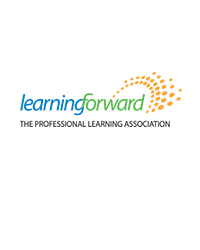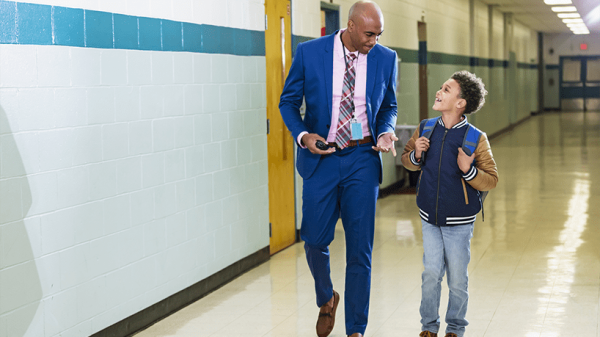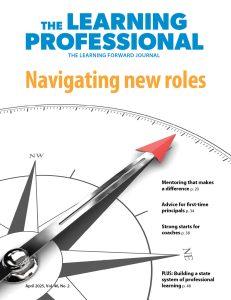By Donna Micheaux
When schools closed in the spring of 2020, school leaders were confronted with numerous questions that required their immediate attention, like how to provide food and computer access to students who didn’t have them and how to facilitate professional learning for remote teaching. At the same time, leaders began grappling with questions about the future of schooling post-COVID-19, like whether to bring any of the new learning ecosystem into the future and how to address glaring inequities.
In the midst of all of the questions and uncertainty, leaders must lead. They must not only manage the current daily reality but give others a sense of hope and determination to persevere. The big question is: what does it take for leaders to succeed in these circumstances?
In April of 2020, I wrote about applying Robert Glazer’s helpful framework for capacity-building as a crucial element of leadership during the COVID-19 crisis. Since then, I have spoken with several school leaders about how the four elements in Glazer’s book, Elevate, are resonating with them as they continue on this uncertainty journey. I have updated this post with their responses, as you’ll see in a section at the end. I hope their reflections will help you reflect, too, and see that some of your challenges and efforts are shared by others.
Glazer defines capacity building as the method by which we seek, acquire, and develop the skills and abilities to consistently perform at a higher level in pursuit of our innate potential. He suggests that leaders build leadership capacity through intentional improvement in each of the following four elements: spiritual, intellectual, emotional, and physical. Below I offer examples, insights, and reflection questions about each one.
Spiritual capacity: Clarify what matters most
Leaders have a clear understanding of what matters most and they communicate effectively about it with those they lead. In times of uncertainty, such as the COVID-19 crisis, what matters most to you? What do you think is the most important goal for you as a school leader and how do you share that with your staff, students, families and community? For example, is it important for you to maintain relationships and a sense of community with your staff, students, and families? If so, how do you convey that this is your purpose and establish and maintain a laser-like focus on accomplishing this goal?
Relationships are the highest priority for Courtney Rodriquez Sales, founder and head of school at the Bloom Academy Charter School in Houston, Texas. During this crisis, she knew it was important to convey the importance of this goal with the community. She shared in a letter to staff and families that her “greatest responsibility as a leader during this crisis is to create a feeling of normalcy and support for scholars during an uncertain and scary time.” She followed this statement of purpose with her aim to support and equip teachers with the tools they need to provide high quality virtual learning. She signed her letter with the closing, “With fierce dedication,” followed by a video link of her students and staff enjoying learning in school pre-COVID-19, as a reminder of the community and joy they share.
This is just one example of a leader being clear about what matters most. You can find others later in this post.
Intellectual capacity: Lead by learning
Crises and challenges often require us to have new knowledge. Leaders need to build their own intellectual capacity and that of others to address the new and everchanging demands brought on by crises like COVID-19. The move from face-to-face learning to remote learning represented a rapid and steep learning curve for many leaders. The COVID-19 crisis has also forced leaders to make difficult decisions about what is the most important content for students to learn, what families can realistically support at home, and how to strike a balance between too much content and too little. These and many other questions and challenges that demand thinking, reflection, and often new learning are consuming the minds of school leaders.
Fortunately, school leaders don’t have to figure out all the answers on their own. There is an abundance of professional learning opportunities and support available; in fact, non-profit organizations, educational-product developers, universities, and others are offering free virtual learning opportunities at a scale never seen before. For example, this past week, I participated in webinars hosted by Learning Forward, engaged with thousands of others in The Global Silicon Valley Summit, and enrolled in one of several courses offered at Yale and other Ivy League colleges via Coursera, all at no cost.
Glazer reminds us that “we learn the most about leadership by observing leaders in times of crisis.” What leaders are you observing? What experts are you tapping to help you lead and learn in areas where you need support? What systems of collaboration are you facilitating so that you may learn with and from peers?
Physical capacity: Withstand the grind
Leaders must be capable physically and mentally to lead under challenging circumstances. Some leaders love a challenge and confidently assert that they never let a crisis go to waste, while others are fearful. Regardless of your personal orientation to challenges, it is important to project confidence. How others see you will impact your ability to lead. If you look tired, stressed out, nervous, or unsure, others will not view you as the competent leader needed in difficult times.
What are you doing to maintain good health and well-being? How do you manage stress, prioritize sleep, and unplug when needed? Are you modeling these practices for other members of your team? And what else are you doing to ensure that your team is maintaining healthy practices?
Emotional capacity: Manage your reactions
According to Glazer, in times of crisis, emotional regulation is the most important capacity-building element. Leaders who remain composed under challenging circumstances, regulating the way they express their emotions and exuding confidence, are more likely to be successful at leading in a crisis. This is part of exhibiting resilience and embracing relationships.
I am currently reading Erik Larson’s book, The Splendid and the Vile: A Saga of Churchill, Family, and Defiance During the Blitz. Larson tells a gripping story of how Winston Churchill’s unparalleled leadership “taught the British people the art of being fearless.” He describes how Churchill’s resilient and decisive leadership during World War II enabled the British people to withstand 57 consecutive nights of bombings, endure an imminent invasion by Germany, persevere to overcome hopelessness, and fight back. Larson shares examples of how Churchill, who communicated often with the public, skillfully began each speech by sharing the honest, brutal facts and ended each one with a promise of hope and renewal.
Think of a past or present leader you admire who has exhibited successful crisis leadership. What lessons can you learn from her or his leadership to help you lead well during our current crisis?
Insights from education leaders
After this blog post was first published, I asked several education leaders about how they navigate each of the four categories. Here I share a few of their responses in the hopes that they will inspire your own reflections and new ideas.
Spiritual capacity: What matters most to you?
- “My primary goal is to stay collectively engaged with our students and their families. We center our efforts on the 2 C’s: Connections and Care. I believe it is important to connect with students, families and each other by whatever means necessary, including phone calls, emails and drive-by home visits. I also believe we need to go above and beyond to show our care during this period of struggle. Staff and community members are currently feeding over 14 families and we’ve collected over 4k for our students and families, many of whom are undocumented and unemployed.”
- “I want to make sure we balance the academic and wellness needs of our students. Our distance learning plans provide students with a daily predictable schedule, access to direct instruction, and connection to a caring adult advisor to make sure their social needs are met. I also considered the needs of our teachers, who will be caring for our students and fulfilling their teaching responsibilities while simultaneously caring for their own children and loved ones as they work from home. During teacher office hours, I often hop in to see how they are feeling and to determine what we can do to better support them. I find that they are more comfortable sharing one-on-one as opposed to during a large staff meeting. As a parent educator, I take this time to also share my personal experiences and remind teachers that relationships are our superpower, and that we have to use that to our advantage.”
- “It is important that my teachers and staff members feel 100% supported by me as their leader. I listen when they are frustrated, allow them a safe space to vent, remind them that I don’t expect perfection, and I constantly reassure them that everything will work out in the end. I begin our weekly Zoom faculty meetings with a “power of positivity” time. This sharing sets the tone for our interactions and gives staff an opportunity to breathe and reflect on what is going well.”
Intellectual capacity: What more do you need to learn about leading in a crisis?
- “I need to know more about how to help my staff, students, and families process the grief that we are all experiencing. I am really focused on learning more about the whole child, social emotional learning, and equity challenges that already existed, but are now exacerbated by the pandemic.”
- “I realize now that providing all of my students with devices was only the tip of the iceberg. I need to learn strategies to address and support students who now have devices, but are not connecting, students who have dropped off or dropped out, students who are spending their day caring for others, families with multiple children and one device, and the many inequities in the home that impact learning.”
- “I am eager to learn more about the future of education. I often talk with leaders outside of the field of education, including bankers, business leaders, and other professionals, about their views and perspectives on the future of education. I think having different perspectives will help us to envision a more innovative future. I realize that we are all in this together and that we must work together to create the ‘new normal.’”
- “I am interested in learning more about what really matters to our students, families, and communities. I regularly engage with them, via phone calls, Zoom meetings, and formal and informal surveys. I am now much more aware of how important it is to hear and address their needs and concerns and to figure out ways to help them become co-teachers who can partner with us to help educate students while they are at home.”
Physical capacity: What are you doing to maintain good health and well-being?
- “I engage in mindfulness. I know that taking care of yourself first is the best investment you will ever make. I encourage others who may need to start off small to take small steps. For example, try bringing 10% more awareness:
- Drink 10% more water today than you did yesterday.
- Plan to go to sleep to get 10% more rest tonight than you did yesterday.
- Plan to get 10% more movement today than you did yesterday.”
- “I take fresh air walks 3-4 times a week and set alarms to build in breaks throughout the day for meditation, exercise, stretching, breathing, just getting up and moving and my all-time favorite, blasting one of my favorite songs and just dancing it out, Grey’s Anatomy style. I also participate in free live dance parties, amazing pop and classical music concerts, and am considering taking a master class focused on dance, photography, writing, or whatever else piques my interest.”
- “I am taking full advantage of this opportunity to learn more about my role as a principal and the education profession as a whole. I regularly participate in webinars, read professional journals, listen to TED Talks, and am currently enrolled in the state-sponsored continuing education program for principals and other district leaders. Fortunately, all of these learning opportunities have incorporated a focus on the impact of COVID-19 on our role as school leaders.”
Emotional capacity: How are you managing your reactions when you communicate to others about the crisis?
- “As a new school leader in this unique situation, I have to be strategic, provide structure, and show confidence when communicating with staff. I am especially aware of my facial expressions and body language and use them to convince staff that I know what I am talking about.” I also know that I have to balance being confident with being transparent during these challenging times. I am always honest when communicating facts, but also share my uncertainty when I don’t know the answer.”
- “During the current pandemic, one of the most important things I think I can do as a leader is to be the calm for my teachers, staff members, parents and students. Despite how frustrated, exhausted, or stressed I am, my staff members should never feel or see this. If I fall apart, what will happen to my staff? If I give up or lose hope, how can I expect them to remain hopeful? If my staff doesn’t have confidence in me as the leader, then I have failed them in some way. I must be the calm and the strength for my team in this time of crisis.”
- “I manage my emotions by always bringing my staff back to our main focus, our vision, and our why: our students. I remind them and myself that regardless of the struggle, we are making student-centered decisions, always doing what is in their best interest. By keeping our students and their needs – whether it is meals, shelter, devices, or additional instructional support – at the center of our efforts, it helps us to push through difficult decisions and challenging times.”
What are you doing to build your leadership capacity?
Glazer points out that all leaders, even great leaders, must constantly work on improving their leadership. Whether you choose to build your leadership capacity by focusing on one or all of the elements described above, you are not only improving yourself as a leader, you will elevate others to do the same. Where will you start and how will it inspire others?
- What matters most to you?
- What more do you need to learn about leading in a crisis?
- What are you doing to maintain good health and well-being during this crisis?
- How are you managing your reactions when you communicate to others about the crisis?
I’d love to hear your thoughts.
 Donna Micheaux (dwmicheaux@comcast.net) is president of Micheaux Educational Consulting and a senior consultant for Learning Forward.
Donna Micheaux (dwmicheaux@comcast.net) is president of Micheaux Educational Consulting and a senior consultant for Learning Forward.









